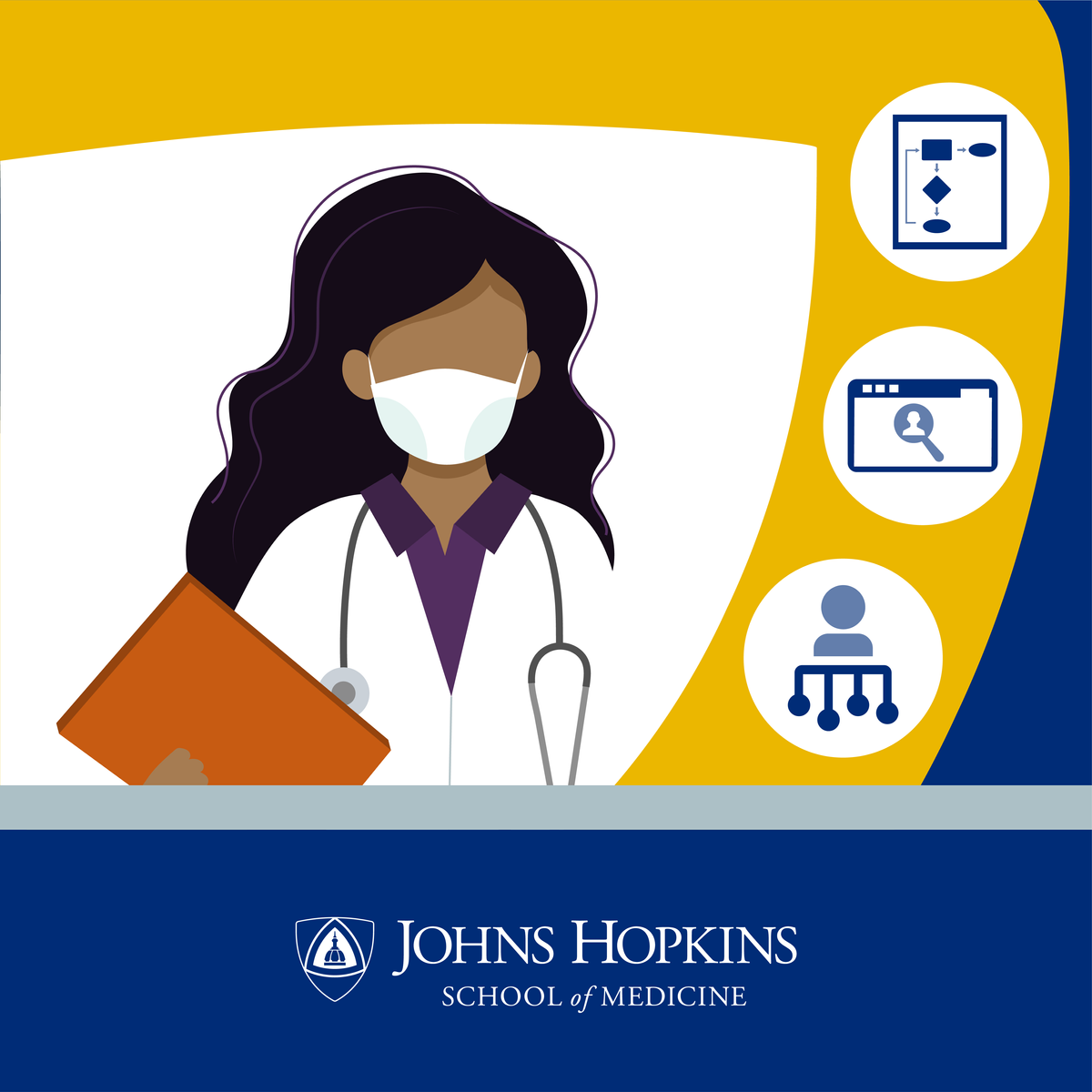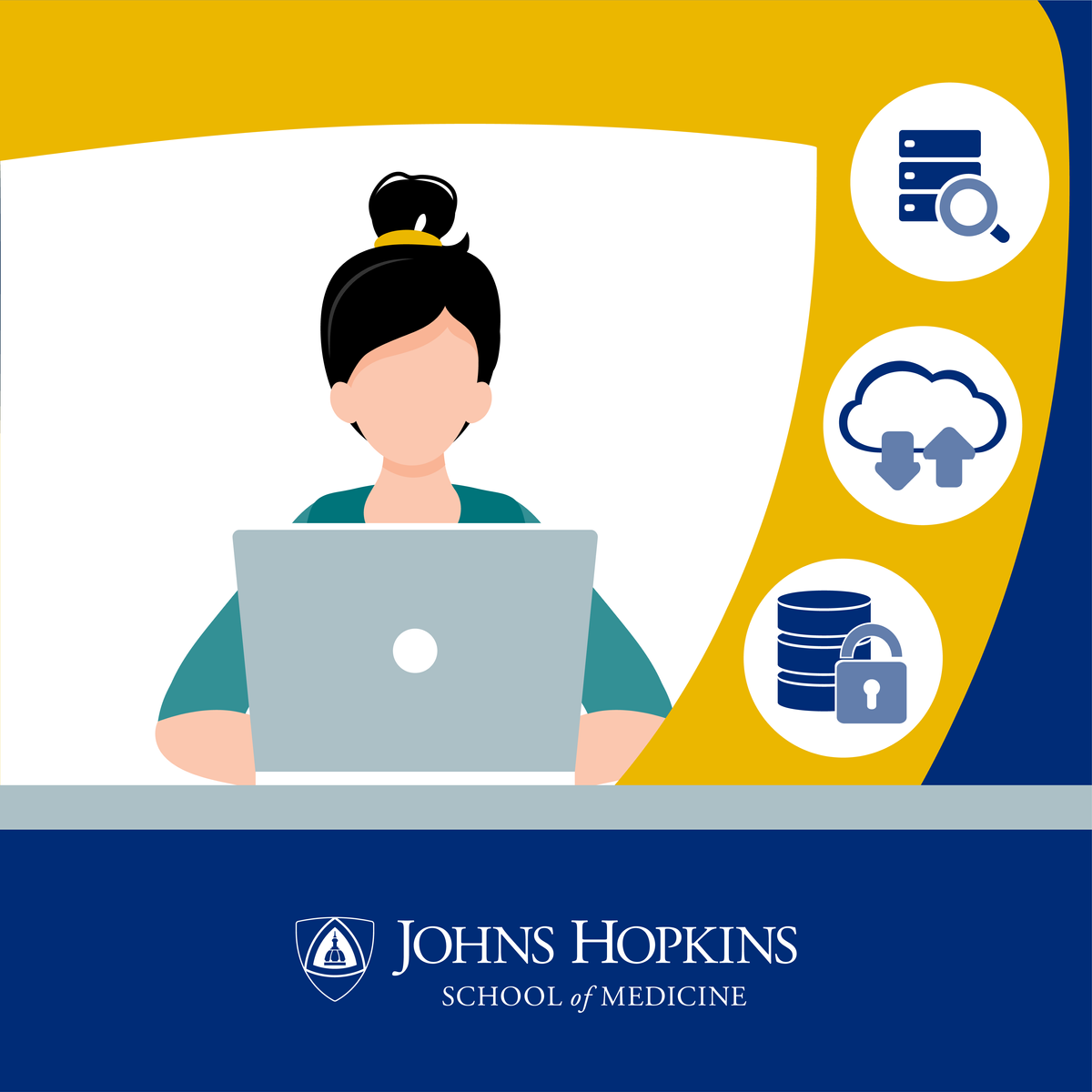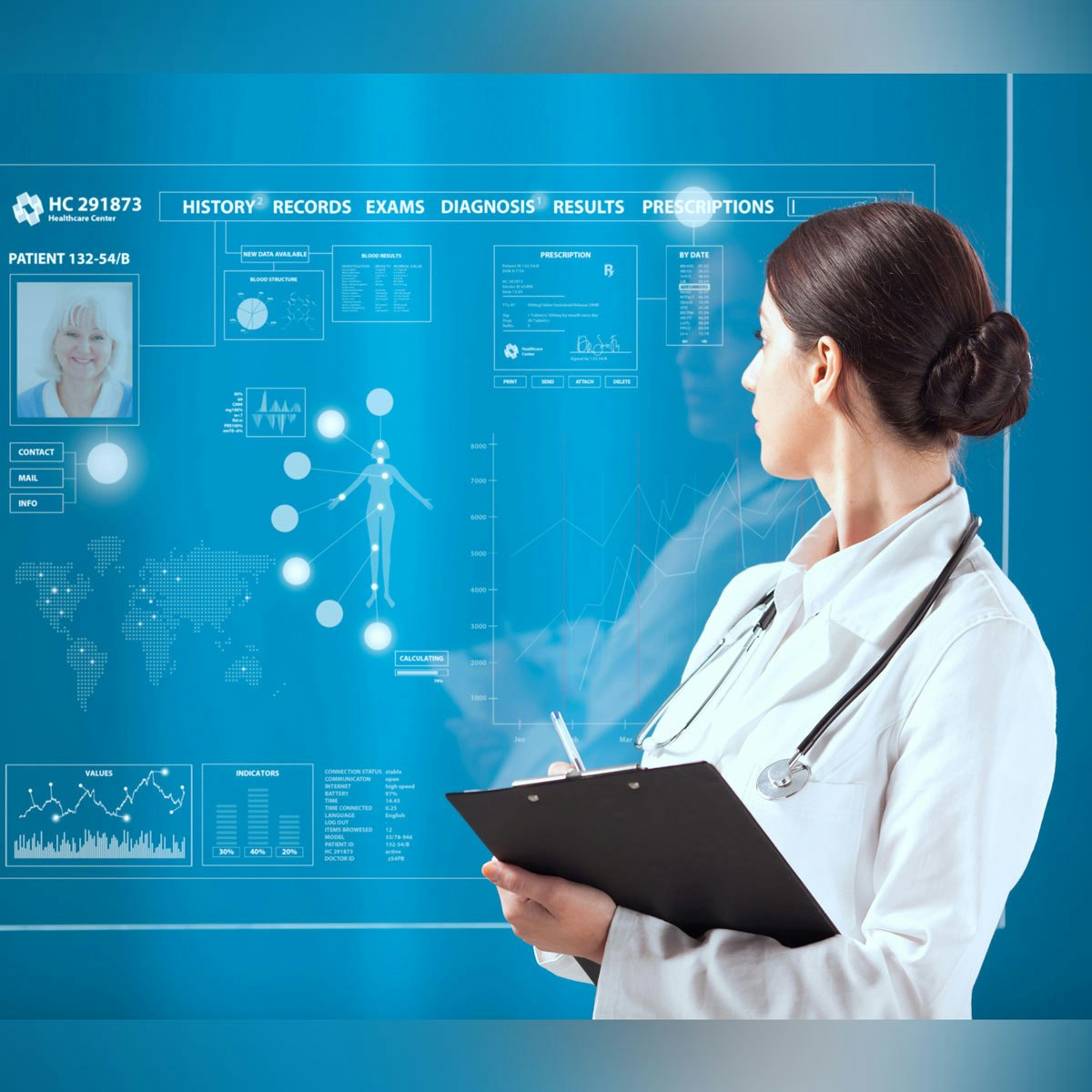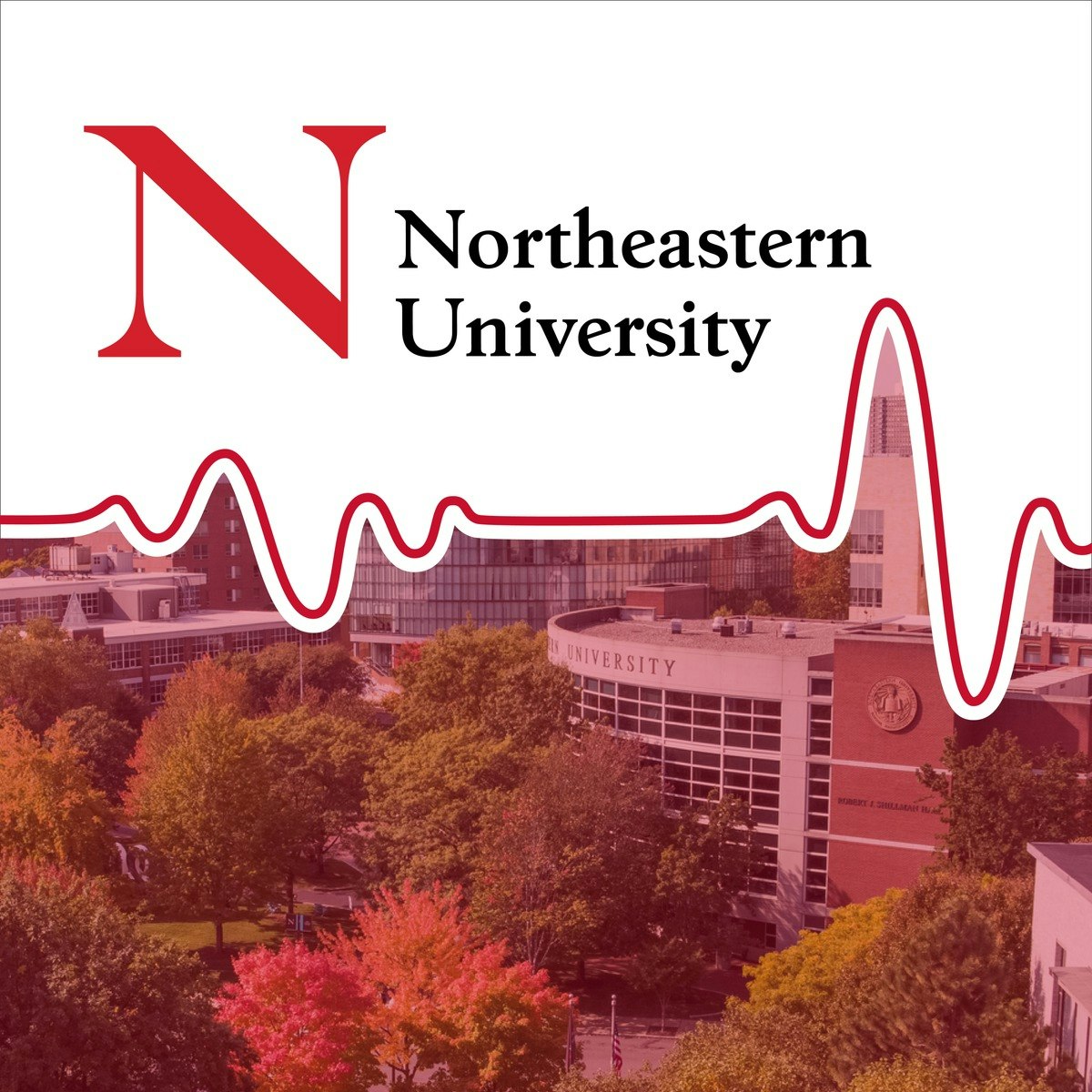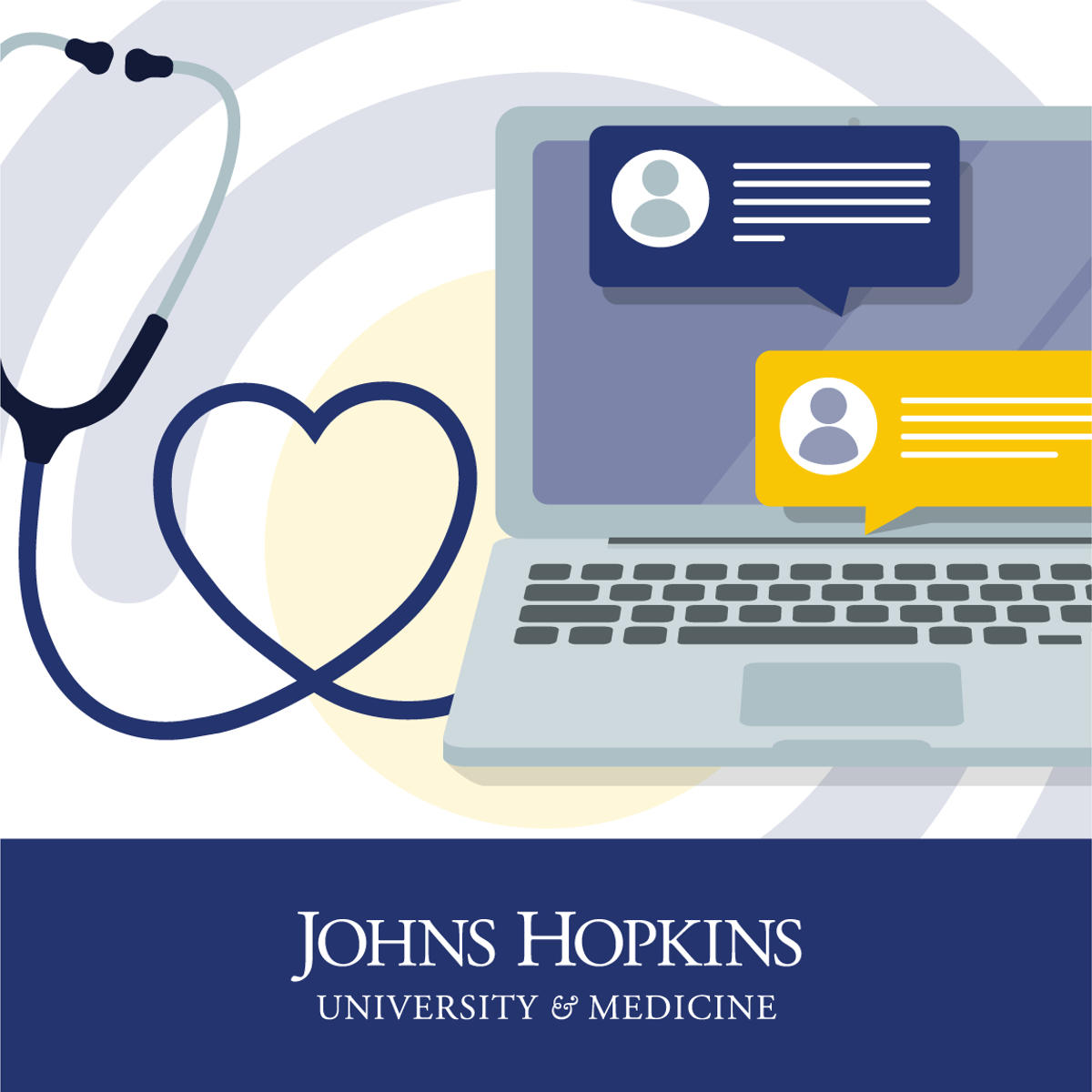Medical Records Technician
A Comprehensive Guide to Becoming a Medical Records Technician
Medical Records Technicians are the diligent guardians of patient health information. They play a crucial role in the healthcare system by ensuring that medical records are accurate, complete, secure, and readily accessible for patient care, billing, and quality management purposes. Think of them as the librarians and data managers of the medical world, organizing complex information vital for treatment and operational efficiency.
This career path offers a unique blend of healthcare knowledge, technical skill, and administrative responsibility. Individuals drawn to this field often appreciate the detailed nature of the work, the importance of maintaining patient privacy, and the satisfaction of contributing to effective healthcare delivery without direct patient contact. It's a vital background role essential for the smooth functioning of any healthcare facility.
Overview of Medical Records Technician
What is a Medical Records Technician?
A Medical Records Technician, often used interchangeably with Health Information Technician, is responsible for managing and organizing health information data. Their primary duties involve ensuring the quality, accuracy, accessibility, and security of both paper and electronic health record (EHR) systems. They review patient records for completeness and accuracy, ensuring all necessary forms, reports, and signatures are present.
Technicians use various classification systems, like ICD-10 (International Classification of Diseases, 10th Revision) and CPT (Current Procedural Terminology), to code and categorize patient information. This coded data is essential for insurance reimbursement, medical research, tracking public health trends, and quality improvement initiatives within healthcare facilities.
Their work ensures that clinicians have the correct information to make treatment decisions, that billing departments can process claims accurately, and that the facility complies with strict privacy regulations like HIPAA (Health Insurance Portability and Accountability Act). They are the gatekeepers ensuring data integrity and confidentiality.
Role in Healthcare Systems and Patient Care
Medical Records Technicians form a critical link in the healthcare chain. Accurate and well-maintained records directly impact patient safety and the quality of care. When physicians and nurses have timely access to complete patient histories, allergies, and diagnoses, they can make better-informed decisions, reducing the risk of errors.
Furthermore, the data managed by these technicians is indispensable for the operational and financial health of healthcare organizations. Correct coding ensures proper reimbursement from insurance companies and government payers like Medicare and Medicaid, preventing revenue loss. This financial stability allows facilities to continue providing essential services.
The aggregated, anonymized data also plays a significant role in public health surveillance and medical research. Identifying disease patterns, tracking treatment outcomes, and monitoring epidemics rely heavily on the meticulous work of medical records professionals. Their diligence contributes not just to individual patient care but to the health of the broader community.
Medical Records Technicians vs. Related Roles
While the terms "Medical Records Technician" and "Health Information Technician" (HIT) are often used interchangeably, there can be subtle differences. Generally, both roles involve managing health data. However, HIT might imply a broader scope, potentially including more advanced data analysis or system management, often associated with an Associate's degree or higher certification.
Other related roles include Medical Coders, who specialize specifically in translating diagnoses and procedures into standardized codes, and Medical Billers, who use this coded information to create and submit claims to insurance providers. Medical Secretaries or Administrative Assistants may handle some record-keeping tasks but typically have broader administrative duties and less specialized training in health information management.
A Health Information Manager usually holds a bachelor's or master's degree and oversees the entire health information department, focusing on administration, system implementation, policy development, and compliance oversight. Technicians often report to these managers.
Core Responsibilities and Daily Tasks
Managing Electronic Health Records (EHR) Systems
A significant part of a Medical Records Technician's day involves working with Electronic Health Records (EHR) systems. This includes entering new patient information, updating existing records, scanning and indexing documents, and ensuring data consistency across different modules of the system. Proficiency with specific EHR software is often a key requirement.
Technicians are responsible for maintaining the integrity of the EHR. They perform routine checks to identify and correct errors or inconsistencies, merge duplicate records, and manage record retention and destruction according to facility policies and legal requirements. They may also assist clinical staff in navigating the EHR or troubleshooting minor issues.
Understanding the workflow within the EHR is crucial. This involves knowing how information flows from patient registration, through clinical encounters, to billing and discharge. Technicians ensure this flow is smooth and that all necessary data points are captured accurately at each stage.
These courses offer insight into the world of electronic health records and the broader field of health IT, essential for managing modern medical data.
This book provides context on how technology, including EHRs, is shaping modern medicine.
Coding Diagnoses and Procedures (ICD-10, CPT)
Medical coding is a core function for many Medical Records Technicians. This involves translating written descriptions of diseases, injuries, conditions, and medical procedures into alphanumeric codes using standardized systems like ICD-10-CM (diagnoses) and CPT/HCPCS Level II (procedures and services).
Accurate coding requires a strong understanding of medical terminology, anatomy, and physiology, as well as familiarity with coding guidelines and conventions. Coders must carefully review clinical documentation – physician notes, lab results, operative reports – to assign the most specific and appropriate codes.
ELI5: Imagine every sickness or doctor's action has a secret code, like 'A09' for infectious diarrhea or '99213' for a typical office visit. Medical coders are like detectives; they read the doctor's notes and figure out the exact secret codes for everything that happened. These codes are used by insurance companies to know what to pay for.
These codes directly impact how healthcare providers are reimbursed. Errors or inaccuracies can lead to claim denials, audits, and financial losses for the facility. Therefore, precision and attention to detail are paramount in this task.
Learning medical coding is fundamental to the role. These courses provide comprehensive training in the essential coding systems.
This book offers practical guidance on medical coding.
Ensuring HIPAA Compliance and Data Security
Protecting patient privacy is a non-negotiable aspect of the job. Medical Records Technicians must have a thorough understanding of the Health Insurance Portability and Accountability Act (HIPAA) and other relevant privacy laws and regulations. They are responsible for ensuring that patient information is accessed, used, and disclosed only as permitted by law.
Daily tasks related to compliance include verifying the identity of individuals requesting records, processing patient requests for access to their own information, tracking disclosures of protected health information (PHI), and ensuring physical and digital security measures are in place. This might involve securing paper records, using strong passwords, and understanding protocols for data encryption and secure transmission.
Technicians often play a role in training other staff members on HIPAA regulations and facility privacy policies. They may also participate in internal audits to identify potential compliance risks and help investigate any suspected breaches of patient confidentiality.
Understanding and applying HIPAA rules is critical. These courses focus specifically on HIPAA compliance.
These books delve deeper into the legal and practical aspects of HIPAA and medical records law.
Auditing Records for Accuracy
Quality control is another vital responsibility. Technicians regularly audit patient records to ensure they are complete, accurate, and compliant with regulations and internal standards. This involves reviewing charts for missing documentation, unsigned orders, incorrect coding, or other discrepancies.
Audits can be concurrent (reviewing records while the patient is still receiving care) or retrospective (reviewing records after discharge). The findings from these audits are used to identify areas for improvement in clinical documentation or workflow processes. Technicians often collaborate with clinical staff to resolve identified issues.
This process helps maintain high standards of patient care, ensures accurate billing, and prepares the facility for external audits by regulatory bodies or insurance companies. Attention to detail and strong analytical skills are essential for effective auditing.
Required Skills and Competencies
Technical Skills: EHR Software Proficiency, Medical Terminology
Proficiency with Electronic Health Record (EHR) software is fundamental. While specific systems vary (e.g., Epic, Cerner, Meditech), understanding the general principles of EHR navigation, data entry, and record management is crucial. Familiarity with standard office software, including spreadsheets and word processing, is also expected.
A strong grasp of medical terminology, anatomy, and physiology is non-negotiable, especially for roles involving coding or auditing. Technicians must understand the language used by clinicians to accurately interpret documentation and assign codes. Continuous learning is often necessary to keep up with new terms and procedures.
These courses provide foundational knowledge in medical terminology and healthcare IT, crucial technical skills for this career.
This book offers practical guidance for those working with health information systems.
Analytical Skills for Coding Accuracy
Medical coding requires significant analytical ability. Technicians must dissect complex clinical documentation, identify key diagnoses and procedures, and apply intricate coding rules and guidelines correctly. This involves interpreting physician intent and selecting the most precise codes available.
Problem-solving skills are needed when documentation is ambiguous or conflicting. Technicians may need to query physicians for clarification or use reference materials to resolve coding challenges. The ability to logically connect diagnoses with procedures is also vital for compliance and accurate billing.
Understanding the downstream impact of coding decisions – on reimbursement, quality metrics, and research data – requires analytical thinking. Technicians must recognize how their work fits into the larger healthcare picture.
These courses help develop the analytical skills needed for accurate medical coding and billing.
Attention to Detail and Organizational Abilities
Meticulous attention to detail is arguably one of the most critical traits for a Medical Records Technician. Small errors in data entry, coding, or record filing can have significant consequences for patient care, billing, and legal compliance. Accuracy is paramount in every task.
Strong organizational skills are essential for managing large volumes of information, often under time pressure. Technicians must be able to prioritize tasks, maintain systematic filing (both physical and digital), track record requests, and meet deadlines for coding and billing cycles. A methodical approach helps prevent errors and ensures efficiency.
Maintaining focus while performing repetitive tasks, such as data entry or chart review, is also important. The ability to concentrate amidst potential distractions in a busy office or healthcare setting is key to maintaining high standards of accuracy.
Ethical Judgment in Handling Sensitive Data
Medical Records Technicians are entrusted with highly sensitive personal health information. Unwavering ethical judgment and a commitment to confidentiality are mandatory. They must understand and adhere strictly to privacy regulations like HIPAA and facility policies regarding data access and disclosure.
This involves recognizing potential ethical dilemmas, such as requests for information from unauthorized individuals or pressure to code inappropriately for financial gain. Technicians must act with integrity, prioritizing patient privacy and accurate representation of care above all else.
Maintaining professional boundaries and understanding the legal and ethical consequences of mishandling patient data are crucial. This requires ongoing awareness of evolving regulations and ethical standards in health information management.
These courses and books emphasize the ethical and legal responsibilities inherent in handling health data.
Formal Education Pathways
Associate Degrees in Health Information Technology
While entry-level positions like Medical Records Clerk might sometimes be accessible with a high school diploma and on-the-job training, an Associate's degree in Health Information Technology (HIT) or Health Information Management (HIM) is increasingly preferred and often required for technician roles, especially those involving coding or EHR management.
These two-year programs provide a comprehensive foundation in medical terminology, anatomy and physiology, coding systems (ICD-10, CPT), healthcare law and ethics, data management, and EHR systems. They blend theoretical knowledge with practical application, often including internships or lab components using real-world software.
Graduating from an accredited program is crucial, as it often makes graduates eligible to sit for professional certification exams, which are highly valued by employers. Many community colleges and technical schools offer HIT/HIM associate degree programs.
Certifications: RHIT, CCS, or CPC Credentials
Professional certifications significantly enhance employment prospects and career advancement opportunities. The most recognized credentials for technicians include:
Registered Health Information Technician (RHIT): Offered by the American Health Information Management Association (AHIMA), this certification typically requires graduation from a CAHIIM-accredited Associate's degree program. It demonstrates broad competency in health information management practices.
Certified Coding Specialist (CCS): Also offered by AHIMA, this credential focuses specifically on advanced coding proficiency in hospital settings (inpatient and outpatient). It often requires experience or completion of a specific coding program.
Certified Professional Coder (CPC): Offered by the American Academy of Professional Coders (AAPC), the CPC is widely recognized for coding proficiency, particularly in physician offices and outpatient settings. Eligibility usually involves experience or completion of an AAPC-approved program.
Choosing the right certification depends on your career goals and the specific setting you wish to work in. Many professionals hold multiple certifications.
Relevant Coursework: Anatomy, Healthcare Law, Data Management
Regardless of the specific program or certification path chosen, certain subjects form the core of a Medical Records Technician's education. A solid understanding of Anatomy & Physiology is essential for interpreting clinical documentation and assigning accurate codes.
Courses in Medical Terminology are fundamental for understanding the language of medicine. Healthcare Law and Ethics coursework covers critical topics like HIPAA, patient rights, and legal requirements for record-keeping. Data Management courses teach principles of database organization, data quality, and information governance.
Other relevant coursework often includes Pathophysiology (understanding diseases), Pharmacology (understanding medications), Healthcare Statistics, Computer Applications in Healthcare, and specific training on coding systems (ICD-10-CM/PCS, CPT, HCPCS Level II).
These courses cover essential topics found in typical HIT/HIM curricula.
Accreditation Requirements (CAHIIM)
Accreditation is a mark of quality assurance for educational programs. For Health Information Technology (Associate's degree) and Health Information Management (Bachelor's/Master's degree) programs, the primary accrediting body in the United States is the Commission on Accreditation for Health Informatics and Information Management Education (CAHIIM).
Graduating from a CAHIIM-accredited program is often a prerequisite for eligibility to sit for key professional certification exams, such as the RHIT offered by AHIMA. Employers often prefer candidates who have graduated from accredited programs, as it signifies that the education meets established industry standards.
When exploring educational options, prospective students should verify the accreditation status of the program, particularly if pursuing certification is a goal. CAHIIM maintains a directory of accredited programs on its website.
Career Progression for Medical Records Technicians
Entry-Level vs. Senior Technician Roles
Entry-level roles, often titled Medical Records Clerk or Assistant, might focus on tasks like filing, scanning, retrieving charts, and basic data entry. These positions provide valuable exposure to the healthcare environment and record-keeping systems.
With experience and often certification (like RHIT or CPC), technicians can advance to roles with more responsibility. This may include complex coding, auditing records for compliance and quality, training new staff, troubleshooting EHR issues, or managing specific types of records (e.g., release of information). Senior technicians often possess deeper knowledge of regulations and coding guidelines.
Salary and autonomy generally increase with experience, skill specialization (like surgical coding or auditing), and certification credentials. Continuous learning and professional development are key to advancing beyond entry-level responsibilities.
Transition Paths to Health Information Management
Experienced Medical Records Technicians (especially those with an RHIT) are well-positioned to advance into Health Information Management (HIM) roles. This often requires further education, typically a Bachelor's degree in HIM, which makes one eligible for the Registered Health Information Administrator (RHIA) credential from AHIMA.
HIM professionals take on broader leadership and administrative responsibilities. They may manage entire departments, oversee EHR implementations, develop policies and procedures, ensure organizational compliance, manage budgets, and analyze health data for quality improvement and strategic planning.
Other related fields include Health Informatics, which focuses more on the technological aspects of managing health data, system analysis, and data analytics to improve healthcare delivery. A background as a technician provides a strong practical foundation for these advanced roles.
This book provides practical insights into health information management.
Specializations: Cancer Registry, Coding Auditor
Within the field, technicians can develop specialized expertise. Cancer Registrars, for example, collect detailed information about cancer patients, treatments, and outcomes. This data is crucial for research, treatment protocols, and public health monitoring. This often requires specific training and the Certified Tumor Registrar (CTR) credential.
Coding Auditors specialize in reviewing the accuracy and compliance of medical coding performed by others. They identify potential errors, provide feedback and education to coders, and help ensure the organization meets regulatory and payer requirements. This role requires extensive coding experience and strong analytical skills.
Other specializations might include Release of Information Specialist (handling requests for patient records according to strict legal guidelines), Clinical Documentation Improvement (CDI) Specialist (working with clinicians to ensure documentation accurately reflects patient severity and care provided), or Privacy Officer (overseeing HIPAA compliance).
Leadership Opportunities in EHR Implementation
Technicians with strong technical skills and understanding of clinical workflows can find leadership opportunities related to EHR systems. They might become EHR trainers, helping clinical and administrative staff learn how to use the system effectively.
Some may move into roles supporting EHR implementation projects, assisting with system configuration, workflow design, testing, and go-live support. Their practical experience with health records is invaluable in ensuring new systems meet the needs of users and comply with regulations.
With further training or education, some might transition into Health Informatics roles, focusing on optimizing EHR use, analyzing system data, or managing health IT projects. These roles bridge the gap between clinical practice, information management, and technology.
Industry Trends Impacting the Role
Adoption of AI in Medical Coding
Artificial intelligence (AI) and machine learning are increasingly being explored and implemented to assist with medical coding. AI tools can analyze clinical documentation and suggest potential codes, potentially speeding up the process and identifying codes that human coders might miss. This is often referred to as Computer-Assisted Coding (CAC).
While AI offers potential efficiency gains, it's unlikely to completely replace human coders in the near future. Human oversight remains critical for verifying AI suggestions, interpreting complex or ambiguous documentation, and ensuring compliance with nuanced coding guidelines. The role may evolve towards coders working alongside AI, validating its output and focusing on more complex cases.
Technicians will need to adapt by developing skills in using and validating AI-driven coding tools. Understanding the capabilities and limitations of AI in this context will be increasingly important.
Telehealth Expansion and Remote Record-Keeping
The rapid expansion of telehealth services has created new challenges and opportunities for medical records management. Technicians must ensure that documentation from virtual visits is accurately captured, integrated into the patient's main EHR, and coded appropriately.
This trend also increases the demand for robust remote access to EHR systems, emphasizing the need for strong cybersecurity measures. Furthermore, the rise of telehealth has increased opportunities for Medical Records Technicians to work remotely, performing tasks like coding, auditing, and data entry from home offices.
Understanding the specific documentation requirements and billing codes associated with telehealth services is becoming a necessary skill set for technicians working in organizations that offer virtual care.
These courses explore the implementation and considerations of telehealth.
Growing Emphasis on Interoperability Standards
Interoperability – the ability of different health information systems and software applications to communicate, exchange data, and use the information that has been exchanged – is a major focus in healthcare IT. Standards like HL7 (Health Level Seven) and FHIR (Fast Healthcare Interoperability Resources) are designed to facilitate this data exchange.
Medical Records Technicians play a role in ensuring the data within their systems adheres to these standards, facilitating smoother information sharing between different providers, labs, pharmacies, and public health agencies. This improves care coordination and provides a more complete picture of a patient's health history.
As interoperability initiatives advance, technicians may need a greater understanding of data standards and how information flows between different systems. Ensuring data quality and consistency becomes even more critical when information is shared across multiple platforms.
These technical courses touch upon data standards used in healthcare IT.
Cybersecurity Threats in Healthcare Data
Healthcare organizations are prime targets for cyberattacks due to the valuable nature of protected health information (PHI). Data breaches can lead to significant financial penalties, reputational damage, and harm to patients whose information is compromised.
Medical Records Technicians are on the front lines of protecting this data. They must be vigilant about cybersecurity best practices, such as using strong passwords, recognizing phishing attempts, ensuring secure data transmission, and adhering to policies regarding access controls and device usage. Their role in maintaining data security is critical.
Ongoing training in cybersecurity awareness and understanding the specific threats facing healthcare data are becoming essential components of the technician's skill set. They contribute to the overall security posture of the organization by handling data responsibly.
This book provides hands-on knowledge related to information security.
Ethical and Legal Considerations
HIPAA Compliance Challenges
Maintaining compliance with HIPAA's Privacy and Security Rules is an ongoing challenge. Regulations evolve, technology changes, and new threats emerge. Technicians must stay current on requirements related to patient rights (like access and amendment of records), permissible uses and disclosures of PHI, and breach notification protocols.
Common challenges include ensuring appropriate access controls in EHR systems, managing requests for information correctly, securing mobile devices used to access PHI, and navigating complex state laws that may offer even stricter privacy protections than HIPAA.
Technicians play a vital role in implementing and monitoring compliance measures, often acting as a resource for other staff members and participating in risk assessments and audits to identify and mitigate potential vulnerabilities.
Balancing Data Accessibility with Patient Privacy
There is an inherent tension between making patient information readily accessible for treatment purposes and safeguarding patient privacy. Technicians must navigate this balance daily, ensuring that authorized clinicians can access the information they need while preventing unauthorized access or disclosure.
This involves understanding role-based access controls within EHR systems, verifying the identity and authority of individuals requesting information, and carefully redacting sensitive information when required for specific disclosures (e.g., for legal requests).
Ethical judgment is crucial when faced with situations where clinical need might seem to conflict with strict privacy rules. Technicians must adhere to established policies and legal requirements, seeking guidance from supervisors or privacy officers when necessary.
Legal Implications of Coding Errors
Inaccurate medical coding can have serious legal and financial consequences. Assigning incorrect codes can lead to improper billing, resulting in overpayments or underpayments from insurers. This can trigger audits, fines, and potentially accusations of fraud or abuse under laws like the False Claims Act.
Coding errors can also misrepresent the quality of care provided, affecting facility performance metrics and potentially impacting patient safety if incorrect diagnoses are recorded. Technicians involved in coding must understand the legal implications of their work and strive for the highest level of accuracy and compliance.
Thorough knowledge of coding guidelines, careful review of documentation, and querying physicians when necessary are essential practices to minimize the risk of coding errors and their associated legal ramifications.
Emerging Regulations in Health Data Governance
The landscape of health data regulation is constantly evolving, both in the U.S. and internationally. New laws and regulations related to data privacy, security, interoperability, and patient access are frequently introduced.
Technicians need to stay informed about these changes, as they directly impact record-keeping practices, system requirements, and compliance obligations. This includes understanding rules related to information blocking (preventing interference with access, exchange, or use of electronic health information) and evolving patient rights regarding their data.
Professional organizations like AHIMA provide resources and updates on regulatory changes. Continuous learning and adaptation are necessary to ensure ongoing compliance in this dynamic legal environment.
Work Environment and Challenges
Typical Workplace Settings
Medical Records Technicians work in a variety of healthcare settings. Hospitals are common employers, where technicians might work in centralized health information management departments. Other settings include physician offices, clinics, outpatient surgery centers, long-term care facilities, and home health agencies.
Some technicians work for government agencies (like the Department of Veterans Affairs or public health departments), insurance companies (reviewing claims), or specialized coding and billing services. The specific duties and work environment can vary significantly depending on the size and type of organization.
While traditionally an office-based role, the increasing use of EHRs and secure remote access technologies has led to more opportunities for remote work, particularly for experienced coders and auditors.
Physical/Mental Demands of Screen-Based Work
The role typically involves spending long hours working at a computer, reviewing electronic records, entering data, and using coding software. This can lead to physical strain associated with sedentary work, such as eye strain, back pain, and repetitive stress injuries (like carpal tunnel syndrome).
Maintaining focus and concentration for extended periods while performing detailed, often repetitive tasks requires significant mental stamina. The pressure to maintain high accuracy and meet productivity targets, especially in coding roles, can also contribute to mental fatigue.
Ergonomic workstation setups, regular breaks, and strategies for managing screen time are important for mitigating the physical and mental demands of the job. Employers increasingly recognize the importance of workplace wellness initiatives.
Managing High-Volume Periods
Workloads can fluctuate, with certain periods often bringing increased pressure. For example, coders and billers may face deadlines related to end-of-month or end-of-quarter financial reporting, leading to higher volumes of records to process.
Implementation of new EHR modules, preparation for external audits, or changes in regulations can also create temporary spikes in workload or demand new learning curves. The ability to manage time effectively, prioritize tasks, and work efficiently under pressure is crucial during these high-volume periods.
Teamwork and good communication within the department are often essential for navigating these busy times successfully.
Burnout Prevention Strategies
Given the demanding nature of the work – requiring high accuracy, concentration, and adherence to deadlines – burnout can be a risk. Strategies for prevention include maintaining a healthy work-life balance, utilizing vacation time, and practicing stress management techniques.
Setting realistic goals, seeking support from colleagues or supervisors when feeling overwhelmed, and engaging in continuous learning to stay motivated and competent can also help. Variety in tasks, where possible, can alleviate the monotony of repetitive duties.
Employers can contribute by fostering a supportive work environment, providing adequate resources and training, recognizing employee contributions, and promoting ergonomic practices and wellness programs.
Frequently Asked Questions (Career Focus)
Can this role transition to health informatics careers?
Yes, absolutely. A background as a Medical Records Technician provides a strong foundation in healthcare data, clinical workflows, and regulatory requirements – all essential knowledge for health informatics. Many technicians pursue further education (Bachelor's or Master's degrees) in Health Information Management or Health Informatics to transition into roles involving data analysis, system implementation, workflow optimization, or IT project management within healthcare.
The practical understanding gained from working directly with health records is highly valuable in informatics roles that aim to improve how data is collected, managed, and used to enhance patient care and organizational efficiency. It's a common and logical career progression path.
How vulnerable is this role to automation?
Automation, particularly through AI and Computer-Assisted Coding (CAC), is impacting the field. Routine, repetitive tasks like basic data entry or simple coding are more susceptible to automation. However, the need for human oversight, interpretation of complex cases, quality assurance, auditing, and ensuring compliance remains strong.
The role is evolving rather than disappearing. Technicians who adapt by learning to work with new technologies, specializing in complex areas (like inpatient or surgical coding), moving into auditing or CDI roles, or pursuing further education in HIM or informatics are likely to remain in high demand. Critical thinking, problem-solving, and understanding the nuances of clinical documentation are skills that are currently difficult to fully automate.
The U.S. Bureau of Labor Statistics projects growth for medical records specialists and health information technicians, suggesting continued demand despite automation. According to the BLS Occupational Outlook Handbook, employment is projected to grow faster than the average for all occupations through 2032.
Salary ranges across experience levels?
Salaries for Medical Records Technicians vary based on factors like geographic location, type of employer (hospital vs. clinic), years of experience, education level, and certifications held. Entry-level positions typically offer lower salaries, while experienced technicians with sought-after certifications (like RHIT, CCS, or CPC) command higher pay.
According to the U.S. Bureau of Labor Statistics, the median annual wage for medical records specialists was $48,780 in May 2023. The lowest 10 percent earned less than $35,150, and the highest 10 percent earned more than $77,870. Roles requiring advanced coding skills, auditing responsibilities, or supervisory duties generally fall into the higher end of the salary range.
Transitioning into management (HIM) or specialized informatics roles typically leads to significantly higher earning potential.
Part-time/remote work availability?
Yes, opportunities for part-time and remote work exist and have increased, especially with the widespread adoption of EHRs. Roles focused on coding, auditing, and transcription are often well-suited for remote arrangements, provided secure connections and adherence to HIPAA regulations are maintained.
Part-time positions may be available in smaller clinics or during specific projects. Remote work often requires a proven track record of productivity, self-discipline, and strong technical skills. While entry-level training might require an on-site presence, experienced and certified technicians have greater flexibility in finding remote or hybrid roles.
This flexibility can be a significant advantage for those seeking better work-life balance or needing to work from a specific location.
Essential certifications for career advancement?
While not always mandatory for entry-level jobs, certifications are crucial for career advancement, specialization, and higher earning potential. Key credentials include:
- RHIT (Registered Health Information Technician): Demonstrates broad competence, often a stepping stone to management. Requires an accredited Associate's degree.
- CCS (Certified Coding Specialist): Highly valued for complex inpatient and outpatient hospital coding roles.
- CPC (Certified Professional Coder): Widely recognized, especially for physician practice and outpatient coding.
Other specialized certifications exist for areas like auditing (e.g., CPMA - Certified Professional Medical Auditor), documentation improvement (CDIP), privacy (CHPS), security (CHPS), or cancer registry (CTR). Holding relevant certifications signals expertise and commitment to the profession, making candidates more competitive.
Impact of AI tools on medical coding accuracy?
AI tools, specifically Computer-Assisted Coding (CAC), can potentially improve coding accuracy by identifying codes or details human coders might overlook and ensuring consistency. They can analyze vast amounts of text quickly, suggesting relevant codes based on keywords and patterns.
However, AI is not infallible. It may struggle with ambiguous documentation, complex medical scenarios, or understanding clinical context and physician intent. Over-reliance on AI without human validation can lead to errors, particularly incorrect code sequencing or missing nuances required by specific payer guidelines.
The most effective approach currently involves using AI as a tool to support human coders. The AI suggests codes, and the human coder reviews, validates, corrects, and finalizes the coding based on their expertise and interpretation of the complete record. This blend aims to leverage AI's speed while retaining human judgment for accuracy and compliance.
Embarking on Your Journey
Choosing a career as a Medical Records Technician means stepping into a vital role within the healthcare ecosystem. It requires meticulous attention to detail, a commitment to lifelong learning, strong ethical principles, and proficiency with technology and medical language. While the path requires specific education and often certification, it offers a stable career with opportunities for specialization and advancement.
If you are organized, analytical, value accuracy, and are interested in healthcare operations without direct patient care, this could be a rewarding path. The increasing complexity of healthcare data and regulations ensures that skilled technicians will remain essential. Remember that resources like online courses on OpenCourser can help you build foundational knowledge or prepare for certification exams. Exploring courses in Health & Medicine or searching for specific topics like ICD-10 coding can be a great starting point.
Making a career change or starting fresh can feel daunting, but the structured pathways through education and certification provide clear milestones. Be patient with yourself, leverage available learning resources, and connect with professionals in the field. Your dedication to managing health information accurately and ethically will contribute significantly to the quality and efficiency of patient care.


